Religion Books to Round Out the Year
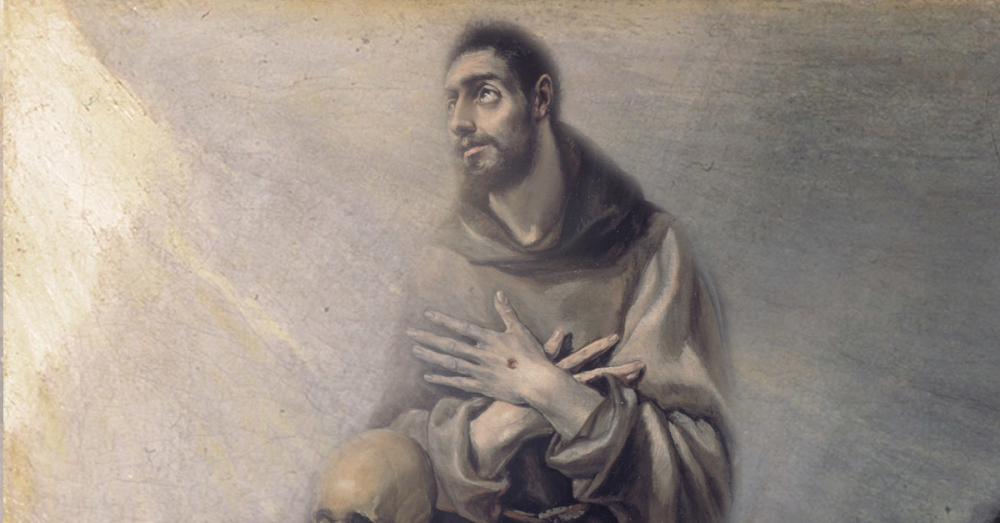
’Tis the season to … be confronted with the question of belief in every grocery store aisle and town square? Whether or not this holiday season includes celebrations within your own tradition, it seems the perfect time to brush up on the current goings-on of world religions.
In the Winter 2016 issue of Foreword Reviews, you’ll find reviews for great books that cover a bevy of religious topics: Pope Francis. Japanese Christians. Jewish history. The intersection of contemporary practice with ancient beliefs. We’ve even got a title here on Christmas itself, and how absolutely safe it is in American culture. You’ll be piqued, moved, and edified, no matter the title you choose.
Last Call
From Serving Drinks to Serving Jesus
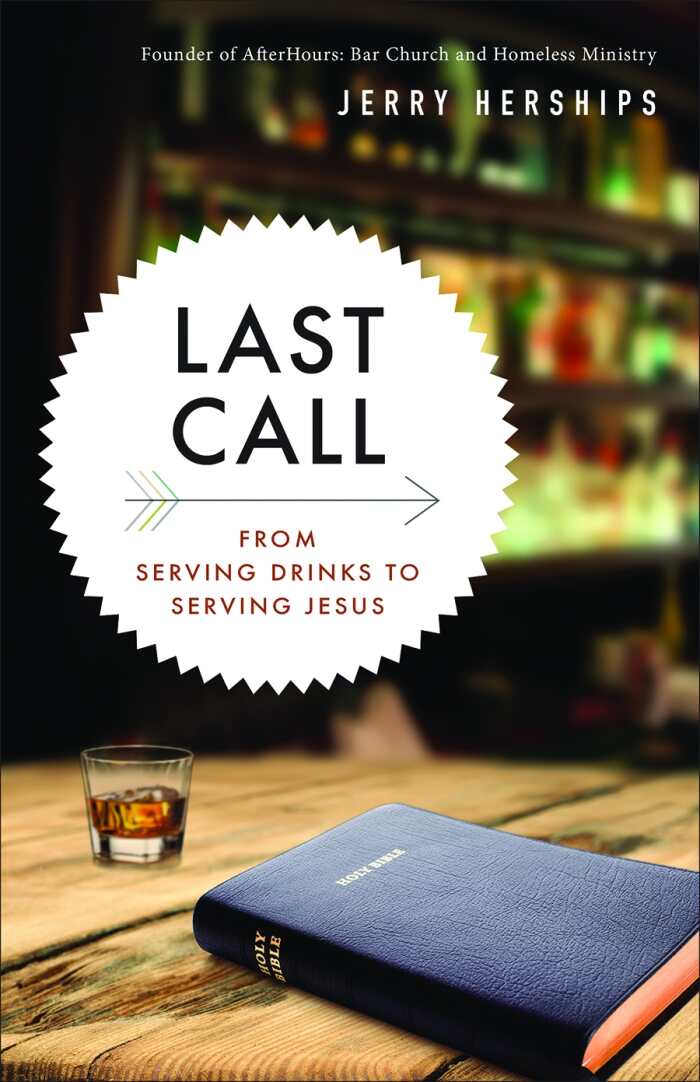
Jerry Herships
Westminster John Knox Press
Softcover $17.00 (178pp)
978-0-664-26058-3
Buy: Local Bookstore (Bookshop)
Herships shows a positive, innovative, and just a little bit rebellious path back to faith and community for those who have been disillusioned.
Last Call: From Serving Drinks to Serving Jesus, by Jerry Herships, is a memoir of faith and how broken dreams become new callings.
Herships grew up Catholic. As a child, he wanted to grow up to be a priest, and he even tried to start a Priest Club in third grade. But life intervened, and he became a comedian and bartender, hoping to make it big in Hollywood. It just didn’t work out—that’s a familiar story. But what’s much less expected is the turn Hership’s life took after that supposed failure. He never expected, decades after the Priest Club, to be entering the ministry, and he certainly never expected his ministry to look like it does: AfterHours, a faith community that meets in bars and helps care for people who are homeless.
What’s most inspiring for people of faith is that God didn’t just throw out Herships’s non-churchy life experience—God used it in reviving a dream and a vision for Herships’s life. Hership learned to bring joy as a comedian and to listen deeply as a bartender. Both have become marks of the AfterHours community.
AfterHours is an open, honest, outward-looking community of faith in a growing, vibrant landscape of real, refreshing faith communities. As a result, Herships’s voice is welcome and needed. He boldly echoes God’s call to help the poor and challenges complacency in the church and in the lives of people who say they follow Jesus.
Herships’s commitment to God is unwavering, and his comments are unvarnished. The writing is clear and fast paced, direct but not confrontational. His voice will appeal to believers who are wearied by failed dreams and fed up with show-up-on-Sunday Christianity.
Last Call will challenge anyone who agrees with his statement “I don’t understand church people who only hang around other church people,” along with those who’ve been disillusioned by life and faith, to fling the doors open on their lives and their churches.
MELISSA WUSKE (November 27, 2015)
Pope Francis and the New Vatican
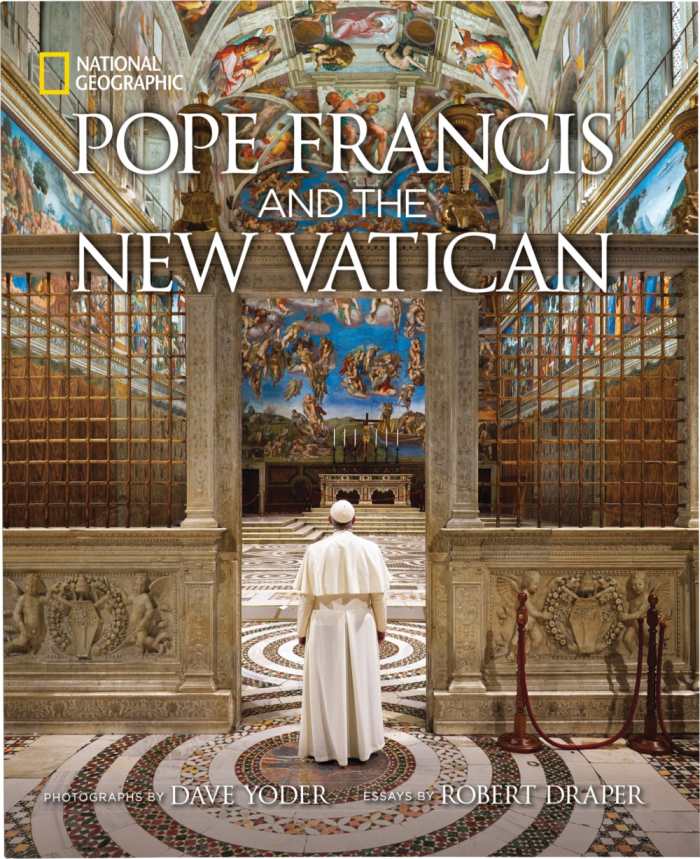
Robert Draper
Dave Yoder, photographer
National Geographic Books
Hardcover $40.00 (253pp)
978-1-4262-1582-7
Buy: Local Bookstore (Bookshop)
This is a visually stunning, illumining project for those curious about Pope Francis and the evolution of the Vatican.
From National Geographic mainstays Dave Yoder and Robert Draper comes a project that captures the charismatic new papacy of Francis in its wide array. Drawing from Church history and the Argentinian pope’s background, the work provides insight into the actions of a pope who, in his devotion to the people, has changed the way the world regards Rome.
Pope Francis and the New Vatican is not a theological work, or a work of apologetics; rather, it seeks to meet Pope Francis where he is, as a religious man with a diverse background, whose commitments to pastoral care are shaking up a millennia-old institution. Drawing from interviews with those who’ve known Francis for decades, Draper dispenses with the idea of Francis as a doctrinal reformer, despite the hopes of some liberals; he approaches him instead as a radically committed kind of pope whose gentle values and focus on the poor have not always been associated with Vatican politics.
“What seems to rivet audiences,” Draper writes, “is the fact of the pope as a model of vulnerability.” Like the saint whose name he took, Francis communes with the poor, dispenses with lavish living, kisses the feet of the ill, and refocuses Church attention on those most in need. Yoder’s photos, which show Francis in locales that seem fortified against such vulnerability, create an awesome and complicated picture of this “new Vatican.”
So too do photographs from Francis’s youth play in neatly: the smiling and charismatic young man who shook up seminary life, the cardinal looking serious as he takes the train into work. Juxtaposed to photographs from his first months in Rome, which find him beaming and his crowds in various states of wonder, readers begin to develop a picture of what is progressive about this papacy. A return to the “sensitivity of the gospels” toward those at the periphery is evinced across the work.
For those still impervious to the unprecedented popularity of Pope Francis, Pope Francis and the New Vatican presents a compelling picture of who the man is, and why his leadership has moved so many across the world. This is a visually stunning, illumining project for those curious about Vatican evolutions.
MICHELLE ANNE SCHINGLER (November 27, 2015)
The Jeweled Highway
On the Quest for a Life of Meaning

Ralph White
Divine Arts
Softcover $17.95 (198pp)
978-1-61125-034-3
One man’s incredible story shows that we all have the ability to live a full and mindful life.
In The Jeweled Highway, Ralph White teaches us how to live by sharing the example of his adventurous life. One of the originators of the New York Open Center, a beacon of holistic living in arguably the world’s greatest metropolis, White colorfully details his physical and spiritual journeys toward greater consciousness and, in the process, offers guidance on how to live both a full and mindful life.
From the stories of his early days in Wales and England all the way through to his adventures in post-Communist Eastern Europe, White’s voice endears him to his audience. One can’t help but imagine listening to him lecture in person, or perhaps having him over for tea in front of the fireplace: his stories are that good, that rich with specifics, and history, and heart.
Of particular note are White’s experiences traveling to South America in the 1970s. His journey encapsulates many of the stereotypes of the decade’s “longhairs,” but there is an earnestness in the details that makes it clear White’s travels were not solely about hedonism—though he, with honesty, does not gloss over the pleasures of the era.
White eventually finds an outlet for his intellectual and spiritual energies by working to establish centers of holistic learning and wisdom around the globe. From Scotland to New York, British Columbia to Hawaii, these centers offer space where people can come to greater openness and sanity by learning from teachers working within spiritual and holistic communities. White’s deep, soulful appreciation for these places is obvious. So, too, is his clear view that they exist apart from him—that they have become what they are, not just because of his work, but because of what they stand for in today’s world.
It is this spirit of dedication and love that is most instructive about White’s memoir. Most people will not live out even a fraction of a fraction of his adventures. But we all have the capacity to work toward gaining wisdom, and to living a life that, as White instructs, showcases exactly who it is that we are.
MARGARET FEDDER (November 27, 2015)
The Myths That Stole Christmas
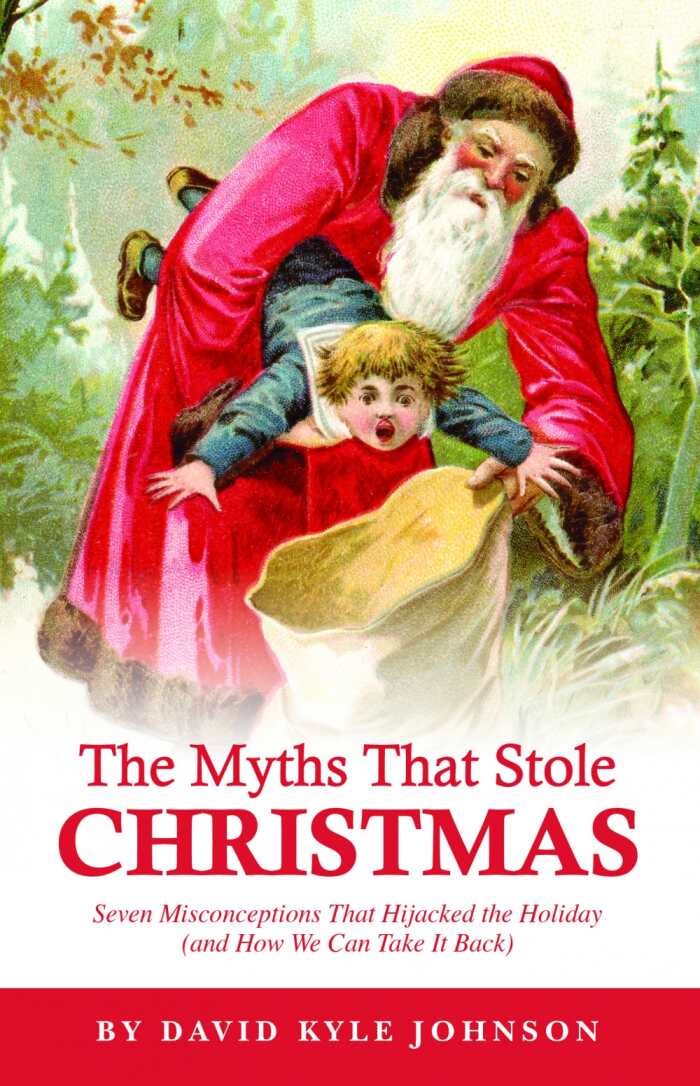
David Kyle Johnson
Humanist Press
Softcover $18.99 (181pp)
978-0-931779-67-1
Buy: Local Bookstore (Bookshop)
Johnson places Christmas in its proper historical context with intelligence and an appreciation for the enjoyment that holiday provides.
Philosophy professor David Kyle Johnson, whose essays on Christmas are already popular across notable media, presents a work that seeks to place contemporary celebrations of the holiday in its proper historical context. Meticulous research and a pragmatic tone feed into this strong case for rethinking all of our presumptions around the December holiday.
Johnson’s work intelligently counters current discussions of Christmas, particularly those that aim at reclamation. His first, and undoubtedly most contentious, counterpoint centers on the “reason for the season” itself. Johnson reminds readers that the mass of Christ’s birth is not in its proper historical place, but was used to usurp the place of pagan winter holidays. So too are prominent symbols of the holiday less about Jesus than they are a co-option of pagan practice, he says.
Mainstays of conversations around our “fading Christian culture” find their notions countered by Johnson’s research, from Kirk Cameron to pundits like Bill O’Reilly and Sarah Palin. “War on Christmas” language is responded to deftly, with Johnson both demythologizing popular stories about it (carols not forbidden, greetings not routed, schools not rendered hostile toward celebrations) and drolly pointing out that a 96-percent celebration rate leaves the “war” lost in advance.
Subsequent chapters dig out the shallow roots of current holiday symbols, from the tree to gift giving to Santa himself, all of which are shown to be relatively recent conceptions. Darker variations of Santa Claus are explored, particularly his roots in myths of wild men who punish misdeeds. So too does Johnson take a run at holiday commercialism, which he argues is a false economic god. His chapter on redirecting funds reserved for Christmas shopping toward actual needs ought to initiate productive economic conversations.
The Myths that Stole Christmas may be intent on slaughtering sacred cows, but it does so with such intelligence, and with such apparent appreciation for the enjoyment that celebrations do lead to, that careful readers should not begrudge Johnson his edifying essays. The overarching request of the project is that readers discuss Christmas knowledgeably and without partisan aims; that’s something that all readers, whether they’re religious or not, should find themselves able to sympathize with.
MICHELLE ANNE SCHINGLER (November 27, 2015)
Witness
Passing the Torch of Holocaust Memory to New Generations
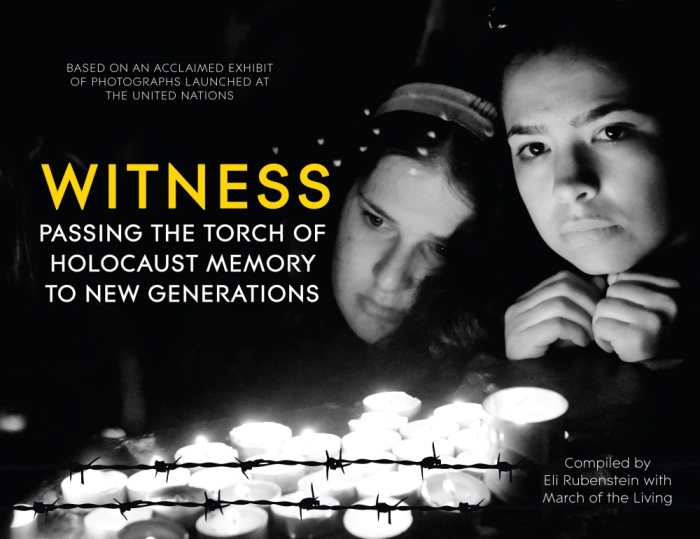
Eli Rubenstein, compiler
The March of the Living, compiler
Second Story Press
Hardcover $32.95 (136pp)
978-1-927583-66-1
Witness is a moving project, serving as both a memorial to those lost and a charge to not let such events repeat themselves.
Witness integrates photographs and survivor testimonies into an exploration of the Holocaust in its historical place. The project draws from the March of the Living—an international effort to familiarize later generations with the horrors of the Shoah—to explore the continued resonance of genocide in world culture.
The purpose of Witness, and of the March of the Living itself, is to ensure that the particulars of the Nazis’ genocidal efforts are never forgotten or repeated. As such, both incorporate the experiences and reactions of next generations across the religious spectrum. Witness includes a prefatory endorsement from Pope Francis, and photographs and testimonies from the March include interreligious and international reactions.
Into such reactions are woven stories of the Holocaust itself. The book begins by rooting anti-Semitism, first as a theological position, and later as one with racial overtones. First photographs are both shocking and familiar, including the liberated barracks at Buchenwald, from which skeletal survivors stare out at their liberators. Such photographs afford the readers opening opportunities to explore the cruelties visited upon those the Third Reich aimed to annihilate.
Just as compelling are stories from those perhaps less familiar: survivors hidden by the Righteous Among the Nations, survivors of the camps not as well known as Elie Wiesel. Photographs place these aging survivors amongst students who hope to learn from them, and center their testimonies in locales once horrific, and now left as memorials.
The project is meticulous about assigning credit to those who resisted Nazi tactics, both amongst those who formed resistance forces and citizens who protected those in danger. “I was brought up to believe that a person must be rescued when drowning,” writes Irena Sendler, an Oskar Schindler-esque figure, “regardless of religion and nationality.” Such imperatives echo as a never again, and stories of rescues—or national refusals to host refugees—reverberate with particular force.
Witness is a moving project, one which serves as both a memorial to those lost and a charge to not let such events repeat themselves. Poems and testimonials explore topics ranging from the nature of evil to forgiveness, resulting in tremendous emotional pull. This is an important and worthwhile collection, laden with moral imperatives that none should evade.
MICHELLE ANNE SCHINGLER (November 27, 2015)
The Evolutionary Testament of Co-Creation
The Promise Will Be Kept
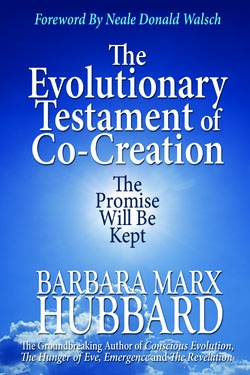
Barbara Marx Hubbard
Muse Harbor Publishing
Softcover $21.99 (546pp)
978-1-61264-172-0
Buy: Local Bookstore (Bookshop)
With a peaceful and welcoming tone, this book is perfect for anyone looking for spiritual guidance.
The Evolutionary Testament of Co-Creation is the newest book by Barbara Marx Hubbard, a well-known name to modern spiritualists, and the author of books such as Conscious Evolution, The Hunger of Eve, Emergence, and The Revelation.
In her latest writing, Marx Hubbard deftly explores the New Testament, specifically the four Gospels, and in doing so creates a contemporary interpretation to help today’s society evolve into a better and more loving global community, hence the title “Evolutionary Testament.” This phrase works perfectly as a summation of the author’s message. This message, however, is more than a mere interpretation. Within these pages, Marx Hubbard shares personal details and connections that evoke a sense of challenge. She dares those listening to take the next steps with her.
This book occupies rare space in that it does not just speak to current times, it reaches forward, offering advice to live a fully-realized and self-conscious faith in the future. The author speaks of a twenty-first-century Christ. And in this lies her goal of this text. Simply put, she desires those reading the Bible to evolve with the times, and “co-create” a true global community based on the teachings of Christ.
Marx Hubbard’s interpretation of the New Testament makes sense in today’s world. And she doesn’t stop with her own interpretation—she encourages those inclined to write their own interpretations as well. She preaches for an active participation to create your own faith story. All of this is done with a sense of humility. It’s a genuine example of her nurturing and fostering her faith.
This is a tightly presented package, including forewords and afterwords from other well-known spiritual voices. Furthermore, there is a Spiritual Practice and Study guide that accompanies this book, which sets it up perfectly for those in bible study groups. A reading list is also included, showing where Marx Hubbard derives inspiration from.
This book, written with a peaceful and welcoming tone, is perfect for anyone looking for spiritual guidance or even those just curious about their own faith.
RON WATSON (November 27, 2015)
My God and My All
The Life of Saint Francis of Assisi
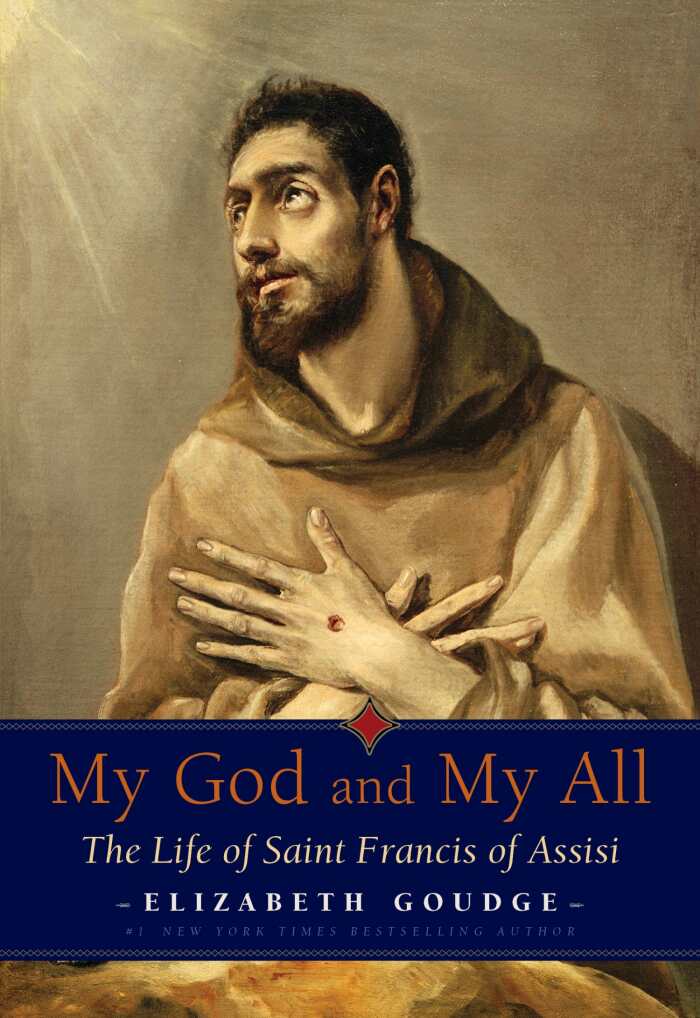
Elizabeth Goudge
Plough Publishing House
Softcover $16.00 (310pp)
978-0-87486-678-0
Buy: Local Bookstore (Bookshop)
Goudge’s ode to Saint Francis is a pleasure to read and will be treasured by those interested in his legacy.
From the files of beloved English novelist Elizabeth Goudge comes a study of the life of St. Francis, whose twelfth-century ascetic approaches to Christian living still resonate amongst the devout. Her language reverential and romantic, Goudge’s work becomes a near ode to this saint, resulting in a work that’s a pleasure to read, whether from the standpoint of belief or not.
Goudge’s novelist sensibilities help to flesh out the biography of the saint, about whom the basics are known, if not the particularities. Goudge writes with a devotee’s flair: “It is good to imagine that he who so loved light and fire was born in summer, in the days of the pride and beauty of the Italian sun.” She paints portraits of the saint’s happy Italian childhood—well-off parents, an idyllic village, a time when life was good.
Francis’s later sacrifices are so set up as considerable ones. Moved by stories of Christ, he eventually eschews his easy life for one of self-denial and service. Under Goudge’s attentions, Francis’s turn toward contemplative life becomes an impressive story of self-denial: he leaves his family, wealth, and comfort, donning a hair shirt and borrowed clothes and weeping over the grandeur of Christ.
Each step of this journey is detailed with poetic attention: Francis’s sacrifice juxtaposed to the comfort of the wealthy, Francis’s devotion measured against reluctance of those comfortable with life as is. The ins and outs of his journey take on meditative turns: he is honored, he is rejected, he takes on acolytes, his demands lead to doubt. Goudge leads him on such journeys with respect, and the effects of her attentions are moving.
My God and My All reads like more of a devotional than a biography. The liberties Goudge takes—Francis’s forays into crusading life are genteel and interreligious, with surrounding horrors unexplored; Francis’s steps in the Holy Land are traced, if self-awarely without documentary backing—may lack historical nuance, but they serve to deepen the beauty of her work. This reconstruction of a beloved saint’s life may not flesh out a historical picture of the man himself, but it will certainly be treasured by those interested in his legacy.
MICHELLE ANNE SCHINGLER (November 27, 2015)
In Search of Japan’s Hidden Christians
A Story of Suppression, Secrecy and Survival
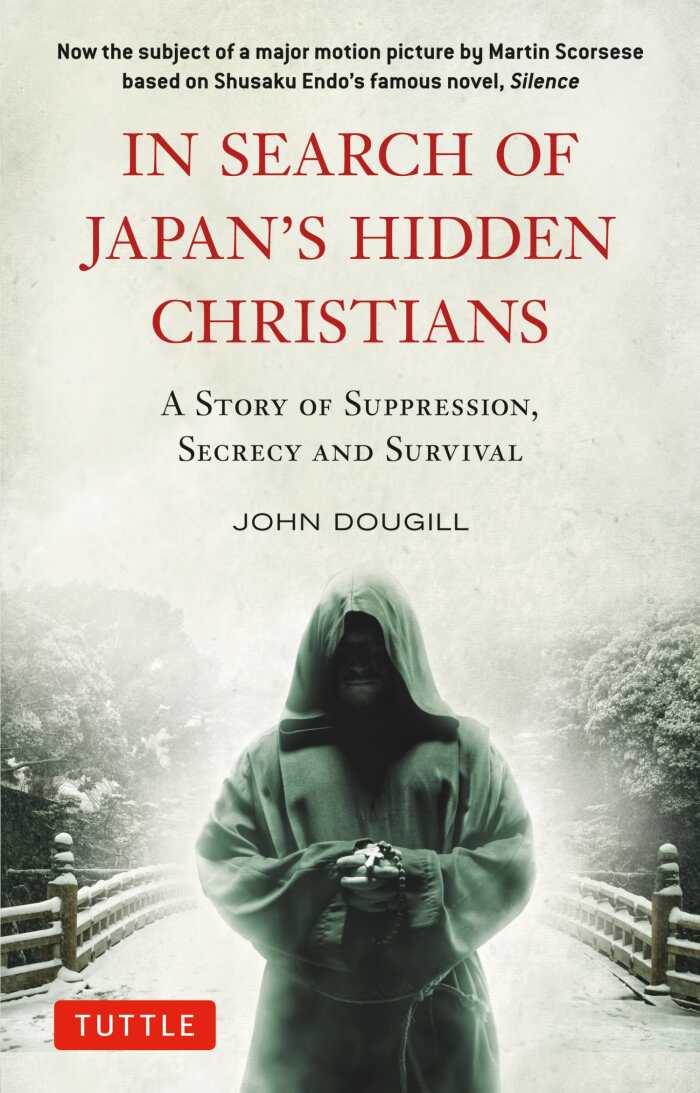
John Dougill
Tuttle Publishing
Softcover $16.95 (234pp)
978-4-80531356-5
Buy: Local Bookstore (Bookshop)
These pages are sure to ignite plentiful curiosity toward a community not often afforded much historical attention.
Oxford-educated John Dougill takes readers on an unconventional tour of Japan, tracing its shadowy Christian past. From early missionaries to contemporary monuments, Dougill puts a Japanese religious minority in its historical context with fascinating results.
In Search of Japan’s Hidden Christians is a history, but it is equally a travelogue. In service of deepening his stories, Dougill visits the Japanese locales where missionaries first landed, and seeks the remnants of their impacts. The work starts off by connecting contemporary Japan to that distant past, and the result is thrilling: that beach, that stretch of rocks. That’s where it began.
Dougill’s gift for turning religious history and folklore into an adventure, one with both a high body count and a reverence for culture, makes for fascinating reading, particularly since his subject is one not often explored. He puts guns and doctrine into the hands of the islanders who first encountered foreign ships, bringing into relief both their interest in the new visitors and their curious first interactions with monotheism.
The awkwardness of translating the story of Christ into a difficult language, and for an audience well versed in Buddhist worldviews, comes across well on Dougill’s pages. It becomes striking that converts were made at all; it becomes unsurprising that leaders interested in trade used conversion to their advantage. A brief interlude of peaceful religious mixing during the sixteenth century found its end in suspicion and suppression, though. Dougill proves equally deft at detailing how poor converts maintained their new religious identities even when under tremendous threats.
Martyrs pepper these pages, as does the meeting of disparate cultures. Hundreds of years of practicing in secret led to a Japanese Christianity not wholly aligned to Europe’s Christianity, and Dougill’s accounts of religious developments lead to some fascinating theological questions. These pages are sure to ignite plentiful curiosity toward a community not often afforded much historical attention. In Search of Japan’s Hidden Christians is a sure hit amongst those interested in global Christianity.
MICHELLE ANNE SCHINGLER (November 27, 2015)

Michelle Schingler is associate editor at Foreword Reviews. You can follow her on Twitter @mschingler or e-mail her at mschingler@forewordreviews.com.
Michelle Anne Schingler
